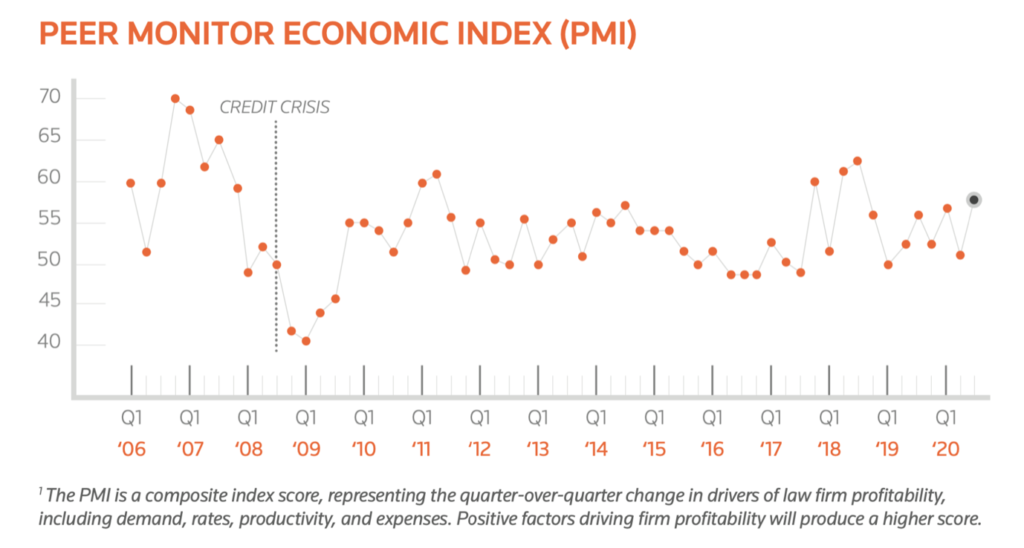
It’s only the seventh day of the new year and one may be forgiven for thinking: ‘OK, that’s enough of 2021, let’s fast-forward to 2022.’ But, we can’t change time and this year is going to be another roller-coaster for sure. In particular it’s going to be a year of stark contrasts in the legal tech and wider commercial legal world.
Global Downturn vs Commercial Law Firms Doing Well
People outside of the world of commercial law may assume that things are not going well in this part of the economy, that huge firms with thousands of lawyers spread from New York to London to Singapore have little to do when the global economy looks so weak and is projected to see a halving in growth. But, that is not so.
Data for the UK – which is a fairly good bellwether given that it’s the second largest legal market on the planet – shows a different story. Property consultancy JLL estimates that ‘nearly £8bn was spent on commercial property in central London last year and the figure is expected to rise’. They add that 2021 will see property deals valued at £12bn – that’s a 50% increase. That will be a driver for legal work in multiple ways.
The UK is also expecting a rush of IPOs in 2021, while last year British technology companies raised a record $15bn, exceeding the $14.8bn they raised in 2019. There is a good chance this trend will continue.
And then there is the M&A boom, which already has kept lawyers busy across the second half of 2020 and will surge through the first half of 2021 as healthier and larger companies go on the hunt, often backed with gazillions of ‘dry powder’ capital held by a variety of funds and other investors.
Meanwhile, commercial litigation trundles on, with potentially a solid uptick driven by the instability of the last 10 months.
Also, as seen by this Thomson Reuters Peer Monitor graphic, it’s arguable that some commercial law firms are doing better now than in the 2015 to 2017 period – which marked the arrival of the New Wave of legal technology and was arguably a great time for many lawyers.

So, what does that mean for legal technology? The simple answer is it means that law firms have enough cash and resources to keep innovating, to keep hiring in tech talent, to keep exploring new tech offerings and generally to stay on track with longer-term, widescale projects, e.g. a revamping of their entire approach to KM.
After all, when you are skint you don’t tend to invest in ‘possible futures’, you concentrate on ‘the now’ to the exclusion of all else.
Even so there are some contrasts.
Urgent + Price Blind vs Long-Term Systemic Change
On one side we have clients that are in life and death decision mode. Even those on the buy or deal finance side are in a rush. Deals are happening suddenly and those involved want things to conclude quickly, which is understandable when the wider economy is so unstable. That creates ‘price blindness’ and can undermine the goals of legal tech companies seeking to drive efficiency.
For example, if the client is saying: ‘Look, this really is about saving the company, the legal costs are negligible right now,’ then a law firm has little pressure to be more efficient. They could well leverage tools that help speed the process, e.g. with faster due diligence, but in such conditions the economic sell may not work.
And yet….and yet, as the pandemic-driven intensity of 2021 starts to drop a little and things stabilise more, clients will be in a world where there are more options to achieve ‘legal production’ than ever before. GCs and legal ops experts are also more aware now than ever before of what tech and ALSPs can do for them. And, aside from the hurly-burly of life and death deals, the economy will still be weaker, corporate incomes may be lower, hence a need to really focus on legal economics and make the best use of tech and process services.
This seems to be a paradox. The reality is that both forces: the urgent and the longer-term, will be driving things. Corporates may be demanding premium advisory services for specific key deals with little regard for the cost, while at the same time enforcing a much more systemic approach to legal work for BAU matters, and for major review and compliance projects, e.g. LIBOR/IBOR.
In short, this site expects a major upswing in interest in legal tech tools that improve areas such as transactional processes and compliance, to name a few.
But, who will be getting all of this work…..it’s going to the ever-growing platforms, right? Not exactly.

Platforms vs Point Solutions
Given the rush toward consolidation – which will accelerate in 2021 – (see the recent deal between Litera and Foundation Software as an example), it could be assumed that platforms will take the lion’s share of what is on offer this year. But, not necessarily so.
If you look, for example, at the leading NLP doc review and analysis companies used in transactional work, the majority of them remain point solutions controlled by their founders. eBrevia is one of the few that are part of a much larger offering, but most of the well-known names are just as they were when they started, even if they have a broader and deeper offering today around a particular type of legal process, i.e. doc review.
And while Contract Express has been part of Thomson Reuters for many years now there are a growing number of independent doc automation companies dotted all over the world. Many of these will see a boom as well in 2021.
There are also more and more CLM platforms coming to market and firms and clients don’t have to choose a mega-platform that has a 100 different features attained via consolidation moves. Maybe they don’t want everything on one platform? Maybe smaller CLM companies offer a better price, more nimble customer service, perhaps they also generate new and useful ideas for the customers faster than the behemoths?
Moreover, this site is approached on a weekly basis by new legal tech startups – the majority of which are point solutions. It’s not stopping.
In short, point solutions are doing well, it’s just that platforms are doing well too. The reality is that the global appetite for legal tech is so large (and growing) that there is plenty of room for both approaches, just as in our regular lives we keep buying goods and services from platform players and point solutions.
Plus, it’s worth noting that although a merger with a platform is a good exit strategy for founders and their investors, it doesn’t have to be that way. If every point solution’s goal was to be part of someone else’s consolidation plan then we’d have about three legal tech companies in the world, not the hundreds and hundreds we still have today.
To conclude, 2021 will be a great year for many types of legal tech with both the narrow focus and broader, integrated focus doing well.
We’ve Never Been So Distributed vs We’ve Never Been So Connected
Last point has got to be about the office – that icon of the modern age, that place where many of us have spent so much of our lives.
On one hand we have never been so connected. Slack, continual and enforced group Zoom calls, and a lack of a firebreak between work and the rest of our lives can make some of us feel as if WFH is a nightmare rather than a liberation. For others, it’s the great break from the enclosing world of office life that we’ve been waiting for.
The reality is that until the vast majority of us have been vaccinated the idea that there will be any ‘normal’ office life is academic. Moreover, when cutting real estate costs boosts profits, why would any law firm – or tech company – want everyone in the office at all times, especially when many staff actually want to be at home?
That contrast of views between those who love the office and those who see it as a necessary evil will continue to rage in 2021. Hopefully a balance will be reached. Personally, one day a week in the office to have proper face to face meetings and gain the benefits of real human interaction seems to be enough. For others they want much more. Perhaps the answer is to make office days the choice of the employee?
Conclusion
The history of 2021 will not be a simple story, that is for sure. Even the pandemic will be in stark contrast – we can only hope – with H1 a time of rising cases, but increasing vaccinations, and H2 a time of the pandemic’s retreat and people feeling safe once again.
Overall, Artificial Lawyer looks forward to another year of change and positive growth for the legal tech industry. Hang onto your seats. It’s going to be quite a ride!